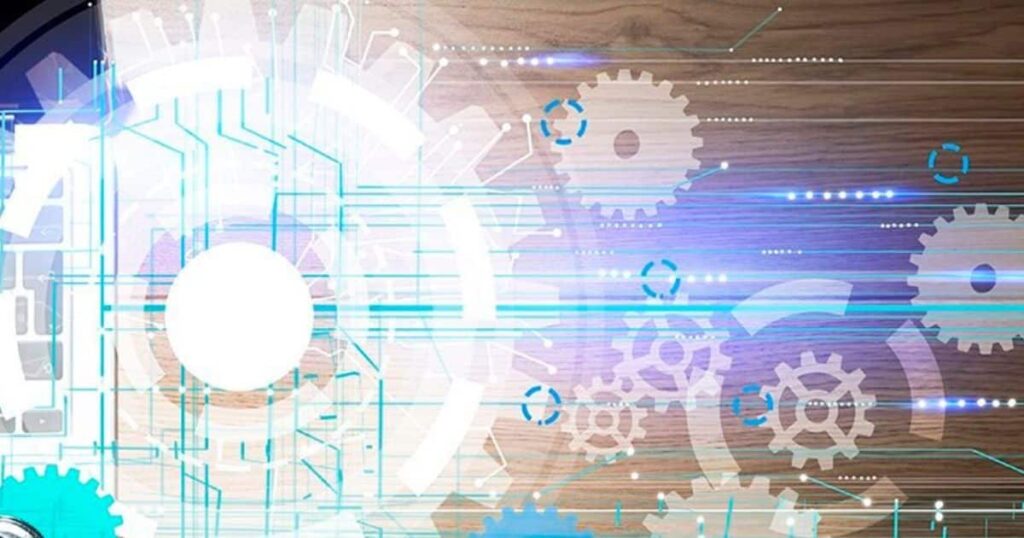In our quickly developing world, innovation remains as an impetus for remarkable change and development. The walk of progress, driven by human creativity, has sped up dramatically in late many years, moving society into a time characterised by noteworthy mechanical headways.
These advancements rise above simple devices; they incorporate the actual texture of our day to day routines, reshaping how we live, work, convey, and cooperate with our general surroundings. In this exhaustive investigation, we will dive into four key mechanical drivers that are impelling us into the future as well as affecting the course of mankind’s set of experiences.
These drivers are Man-made brainpower and AI, Environmentally friendly power and Maintainability, Biotechnology and Medical services, and the Web of Things (IoT).
Artificial Intelligence and Machine Learning
Man-made reasoning (artificial intelligence) and AI (ML) are at the front line of the innovative upheaval. These fields have seen phenomenal development, driving advancement across businesses, from medical care to back and then some. AI and ML systems are designed to mimic human intelligence, enabling them to analyze vast datasets, make predictions, and automate tasks with unparalleled precision.
In any case, it was only after the mid-twentieth century that man-made intelligence research genuinely started, with pioneers like Alan Turing and John McCarthy preparing for the improvement of shrewd machines. Fast forward to the present time, and simulated intelligence has penetrated practically every part of our lives, from voice-initiated individual colleagues to self-driving vehicles.
One of the most striking parts of computer based intelligence and ML is their capacity to consistently learn and adjust. Dissimilar to customary PC programs, which adhere to unbending arrangements of directions, computer based intelligence frameworks can refine their presentation over the long run by handling and gaining from enormous volumes of information.
This flexibility has prompted weighty applications, for example, regular language handling, PC vision, and suggestion frameworks. Simulated intelligence driven innovations like chatbots and remote helpers have reformed client support and customized client encounters. Nonetheless, the ascent of computer based intelligence isn’t without its difficulties.
Moral worries encompassing simulated intelligence independent direction, protection issues connected with information assortment, and the potential for work removal have started serious discussion. Also, the improvement of independent computer based intelligence frameworks, for example, self-driving vehicles, brings up issues about security and responsibility.
Renewable Energy and Sustainability
The squeezing need for maintainability in a time set apart by environmental change and ecological corruption has catalyzed critical progressions in sustainable power advancements. As social orders across the globe wrestle with the basics to diminish ozone harming substance discharges and change to cleaner energy sources, imaginative arrangements have arisen.
From sun powered chargers that saddle the force of the sun to wind turbines that outfit the energy of the breeze, these advances are reshaping the manner in which we power our reality. In this part, we will investigate the development of environmentally friendly power sources, their monetary practicality, and the worldwide endeavors to progress to a maintainable energy future.
The journey towards renewable energy is one that spans decades. Early developments in sustainable power, for example, the improvement of the photovoltaic cell and the development of the principal wind turbines, established the groundwork for what might turn into a worldwide energy change. Today, environmentally friendly power advances have arrived at extraordinary degrees of proficiency and moderateness.
Sun powered energy, specifically, has seen emotional development. Sun powered chargers, which convert daylight into power, have turned into a typical sight on housetops and sun based ranches. The falling expense of sunlight based chargers and headways in energy capacity arrangements have made sun oriented energy more open and solid than any other time in recent memory.
Wind energy has also experienced significant expansion, with towering wind turbines dotting landscapes in regions with favorable wind conditions. One of the basic benefits of environmentally friendly power sources is their natural maintainability. Dissimilar to petroleum derivatives, which discharge carbon dioxide and different contaminations when copied, environmentally friendly power creates power without hurtful outflows.
Moreover, the progress away from petroleum products has financial ramifications, especially in districts vigorously dependent on the non-renewable energy source industry.
Heading 3: Biotechnology and Healthcare
Biotechnology is another mechanical power that is driving progressive headways, especially in the domain of medical care. The assembly of science and innovation has opened new boondocks in sickness counteraction, therapy, and diagnostics.
From customised medication custom-made to a person’s hereditary cosmetics to quality altering methods that hold the commitment of killing genetic illnesses, biotechnology is reshaping the scene of medical services. In this part, we will dig into the moral contemplations encompassing biotechnology, its job in worldwide wellbeing, and the potential for extraordinary clinical leap forwards. The foundations of biotechnology can be traced back to antiquated civic establishments, where people participated in simple practices like maturation and specific rearing of plants and creatures.
The potential of gene editing is vast. It holds the commitment of relieving hereditary infections, upgrading human characteristics, and in any event, destroying specific illnesses by changing the hereditary code liable for their beginning. However, these potential outcomes likewise bring up significant moral issues about the restrictions of human mediation in the hereditary cosmetics of people and the more extensive ramifications for society. Moreover, biotechnology plays had a crucial impact in tending to worldwide wellbeing challenges.
The improvement of immunizations, like those for Coronavirus, has exhibited the quick progressions in biotechnology that can save lives on a worldwide scale. Biotechnology also offers hope in the fight against diseases like cancer, where targeted therapies are being developed to attack cancer cells while sparing healthy tissues. Despite these promising developments, ethical considerations in biotechnology are paramount. Issues encompassing hereditary security, the potential for planner children, and admittance to biotechnological headways should be painstakingly tended to.
The Internet of Things (IoT)
The Web of Things (IoT) addresses a groundbreaking power in the domain of network and mechanization. In an undeniably interconnected world, the IoT has led to a trap of shrewd gadgets, frameworks, and sensors that convey and team up consistently. From savvy homes that change lighting and temperature in view of client inclinations to independent vehicles that explore traffic and decrease mishaps, IoT advancements are having an impact on the manner in which we live, work, and communicate with our current circumstance.
Today, IoT gadgets are unavoidable, from shrewd indoor regulators that learn client inclinations and streamline energy use to wearable wellness trackers that screen wellbeing measurements. The modern area has likewise embraced IoT, with applications in shrewd assembling, coordinated operations, and agribusiness. These advances guarantee expanded productivity, diminished asset utilization, and further developed wellbeing.
One of the main benefits of IoT is upgrading accommodation and personal satisfaction potential. Savvy urban areas, for instance, use IoT sensors to upgrade traffic streams, lessen energy utilization, and improve public wellbeing. Similarly, healthcare benefits from wearable IoT devices that can monitor vital signs and detect health issues in real-time, improving patient outcomes. Notwithstanding, the expansion of IoT likewise raises concerns, especially in the domain of network protection.
The interconnected idea of IoT gadgets implies that they can be defenseless against cyberattacks. Security breaks can have expansive results, from compromised individual information to the potential for IoT gadgets to be utilized as devices in huge scope cyberattacks. In addition, the assortment and utilization of huge measures of information produced by IoT gadgets bring up significant protection issues.
As IoT turns out to be more incorporated into day to day existence, the harmony among accommodation and information security should be painstakingly thought of. Regulatory frameworks and industry standards are evolving to address these concerns, emphasizing the need for robust security measures and transparent data practices.
Ethical and Societal Implications
While these four technological drivers—AI and ML, renewable energy and sustainability, biotechnology and healthcare, and the IoT—hold immense promise, they also raise complex ethical and societal questions. The convergence of innovation and humankind requires cautious thought of protection, security, and the potential for work dislodging. In this segment, we will investigate the moral issues and social outcomes related with these advances.
One of the focal moral predicaments presented by these advancements spins around security. As man-made intelligence frameworks and IoT gadgets gather tremendous measures of information, questions emerge about who approaches this information and the way things are utilized. Worries about information breaks, unapproved observation, and the potential for information to be utilized in manners that hurt people or networks highlight the significance of vigorous information protection guidelines and online protection measures.
Moreover, the utilization of computer based intelligence in dynamic cycles, for example, employing calculations or prescient policing, raises worries about predisposition and decency. AI systems can inherit biases present in the data used to train them, potentially perpetuating discrimination and inequality. Guaranteeing that artificial intelligence is planned and prepared in light of decency and straightforwardness is quite difficult for the innovation business. Moreover, the potential for work removal because of computerization driven by simulated intelligence and mechanical technology is a cultural concern.
While mechanization can possibly increment proficiency and lessen work serious errands, it additionally can possibly upset work in specific businesses. Preparing the workforce for the transition to a more automated future and ensuring access to education and reskilling opportunities is a critical societal imperative. The ethical considerations surrounding biotechnology are equally profound. The ability to edit genes, while holding the promise of eradicating genetic diseases, raises questions about the limits of human intervention in the genetic code.
Conclusion
The four innovation drivers talked about in this article — Man-made consciousness and AI, Environmentally friendly power and Maintainability, Biotechnology and Medical care, and the Web of Things — are not detached drifts but rather interconnected powers molding the eventual fate of our reality. They address the zenith of human inventiveness, logical revelation, and mechanical advancement. Simulated intelligence and ML hold the commitment of changing how we work and live, yet they likewise request cautious moral contemplations to guarantee that they benefit society overall.
Environmentally friendly power and maintainability offer a way to a greener planet and a more practical future, yet they require progressing responsibility and development to address difficulties like energy irregularity and monetary changes. Biotechnology can possibly reform medical care and human science yet should be directed by moral standards to guarantee mindful use. The IoT is reshaping our world through interconnected devices, yet it poses security and privacy challenges that require vigilance.




